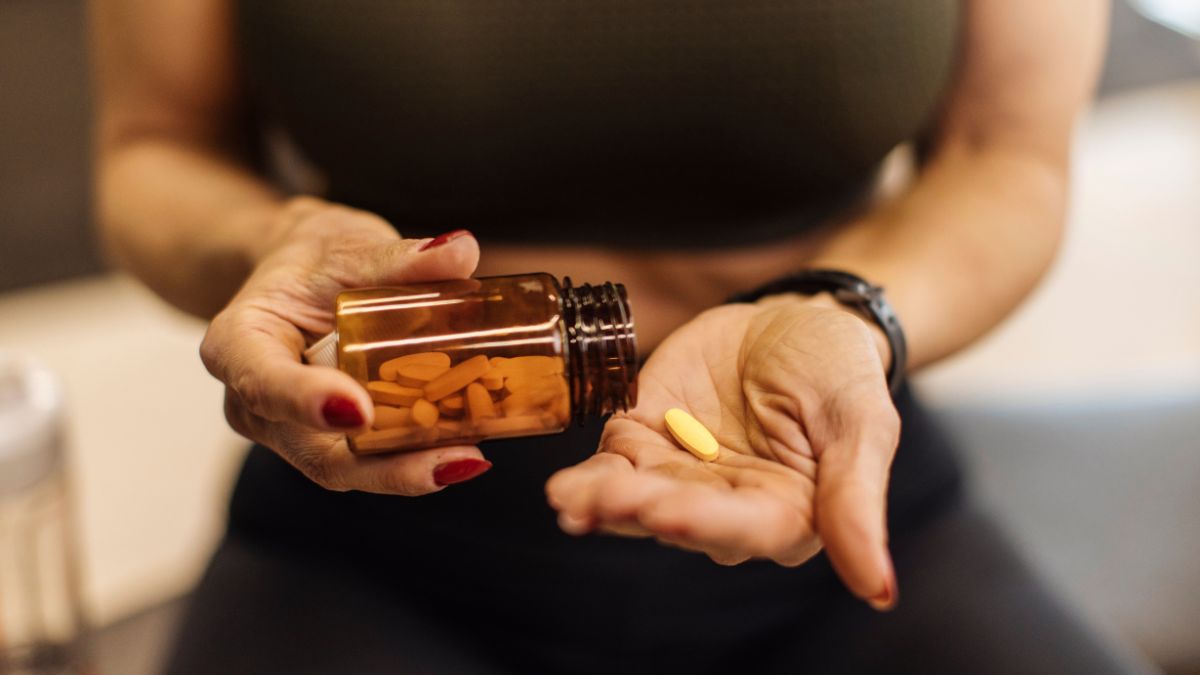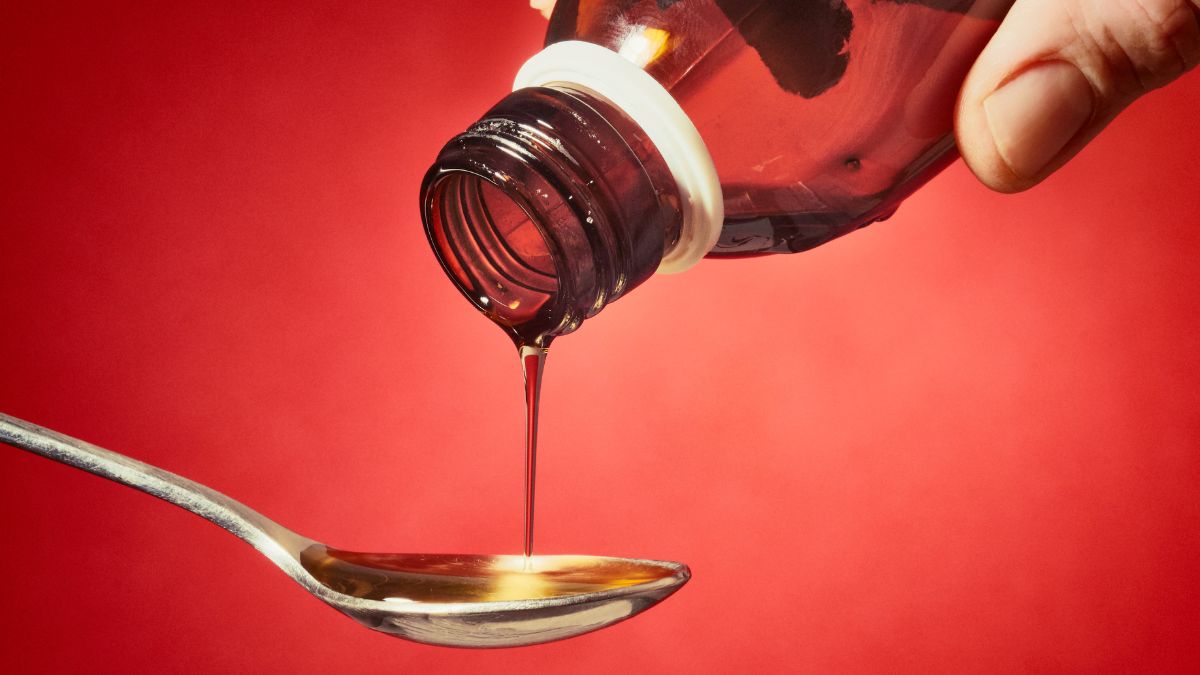Embarking on the recovery journey from addiction often requires more than just abstaining from substances—it’s about rebuilding a life. As individuals strive for sobriety, they are encouraged to fill their time with positive and constructive activities.
Hobbies, in particular, offer therapeutic advantages, providing recovering addicts with outlets for expression, distraction, and a newfound sense of purpose. In fact, by taking up healthy hobbies and routines, many find renewed passion and meaning in life.
Meanwhile, the support network of friends, families, therapists, and counselors plays a pivotal role in sustaining this transformative journey, ensuring that the dangers of boredom and excess idle time don’t lead one astray.
Join us as we explore the profound impact of hobbies on the addiction recovery process and introduce 17 activities to consider for those on this healing path.
Yoga
Emerging from ancient India, yoga offers recovering addicts a holistic way to harmonize the mind, body, and spirit.
Beyond the physical benefits, its emphasis on mindfulness and inner balance can be instrumental in managing cravings, stress, and negative emotions tied to addiction recovery.
Many recovery centers now integrate yoga sessions into their treatment programs, recognizing their effectiveness in alleviating symptoms of anxiety and depression often accompanying addiction.
Meditation
A tradition rooted in focused thought, meditation equips those in recovery with tools to navigate and redirect their thoughts, a critical skill during moments of vulnerability.
Techniques like mindfulness provide a consistent anchor, grounding individuals amidst the chaos of withdrawal and recovery. Consistent meditation practices have also been linked to increased emotional regulation and resilience, vital for those rebuilding their lives post-addiction.
Hiking
Hiking is more than a nature walk; it’s a therapeutic journey for those on a recovery path. The physical exertion paired with the calming influence of nature can act as a powerful detoxifier, allowing individuals to process emotions and gain clarity in their recovery journey.
Nature’s therapeutic effects have long been recognized, and research suggests that immersion in natural settings, often termed ‘forest bathing’, can significantly reduce cortisol levels, the body’s primary stress hormone.
Gardening
As recovering addicts nurture plants in gardening, they subconsciously nurture their healing souls. The repetitive tasks, connection to the earth, and the joy of witnessing growth can be a metaphor for their recovery journey, reminding them of their resilience and potential for renewal.
Gardening offers tactile stimulation, engaging individuals in sensory experiences and grounding them, which can be particularly beneficial for those who experience triggers or flashbacks related to their addiction.
Painting or Drawing
For many in recovery, articulating feelings can be challenging. Painting or drawing provides an expressive outlet, allowing individuals to process complex emotions without words.
They can confront, express, and release pent-up feelings tied to their addiction through colors and strokes. Moreover, engaging in art therapies has been found to improve self-esteem and reduce feelings of isolation, two common challenges faced by recovering addicts.
Writing
The act of writing can be transformative for recovering addicts. Documenting experiences, challenges, and aspirations, they can gain perspective, find closure, and map their recovery journey.
Writing can be both a personal refuge and a testament to their resilience. Journaling or therapeutic writing exercises can also offer a tangible reflection of progress, serving as a motivational tool as they navigate the complexities of sobriety.
Call Design for Recovery to Begin Your Healing Journey!
Reach out to our team to discuss sober living options and next steps toward a healthier routine.
Music (playing or listening)
Engaging with music, whether it’s playing an instrument or simply listening to your favorite tunes, offers an avenue for emotional expression and processing feelings.
For many recovering addicts, songwriting becomes a therapeutic outlet to externalize and work through complex emotions. Music is an effective distraction, redirecting the mind’s focus away from cravings and toward a positive outlet.
Beyond its emotional benefits, playing or listening stimulates various parts of the brain, enhancing healing and cognitive functioning.
Crafting (e.g., knitting, pottery, woodworking)
Crafting activities like knitting, pottery, or woodworking promote mindfulness. The repetitive motions involved, especially in knitting, can have a meditative effect, aiding in being present in the moment—an essential skill for those in recovery.
Completing a project, be it a knitted scarf or a woodwork piece, offers a tangible sense of accomplishment, countering feelings of inadequacy often felt during addiction.
Joining crafting groups presents a safe social setting where individuals can interact in a supportive and non-judgmental environment, fostering community ties.
Running or Jogging
Running or jogging goes beyond just physical benefits. Each stride releases endorphins—chemicals in the brain that act as natural painkillers and mood elevators.
This is especially beneficial for recovering addicts, offering a natural high that can substitute for the artificial highs previously sought. Establishing a running schedule can introduce much-needed structure to a recovering addict’s life.
Opting for outdoor trails brings the therapeutic calm of reconnecting with nature.
Dance
Dance serves as a dynamic form of emotional release. It allows individuals to express feelings and emotions that might be too challenging to verbalize.
Dancing offers a full-body workout, ensuring detoxification and promoting overall health.
Group dance classes can be the perfect setting for those hesitant about jumping into social scenarios post-recovery. They offer a structured yet supportive environment, helping individuals rebuild social confidence.
Swimming
The water’s gentle embrace during swimming sessions offers relaxation and stress relief—a crucial factor given that stress is a common relapse trigger.
Swimming, a full-body workout, aids in physical recovery, toning muscles, and improving cardiovascular health.
Besides its physical aspects, the rhythm of strokes and breathing during swimming can have a meditative quality, fostering a sense of mindfulness.
Photography
Photography encourages individuals to see the world through a new lens, quite literally. Capturing moments can shift one’s focus from past regrets to the present’s beauty, instilling a sense of gratitude.
As a non-verbal form of expression, photography allows for exploring feelings and experiences, often revealing nuances missed in everyday hustle. For those inclined toward landscape or wildlife shots, it’s an opportunity to foster a deeper bond with nature, bringing a sense of calm and connection.
Incorporating these hobbies and activities into one’s recovery journey can be transformative. They offer therapeutic outlets, promote physical health, and help rebuild social and emotional ties—essential for holistic recovery.
Cooking or Baking
Engaging in the art of cooking or baking is about more than just delicious outcomes. It’s a journey of exploration and expression that many find therapeutic.
Mastering new recipes or perfecting a pastry technique can give recovering addicts a sense of achievement and boost their confidence. The creative avenue that cooking and baking provide offers a therapeutic means to channel emotions positively.
Measuring, stirring, and tasting can become meditative, drawing attention away from cravings or negative thoughts.
Contact Design for Recovery Today!
Fill out our quick form to connect with a peer mentor and learn how our sober living community supports accountability, structure, and personal growth in recovery.
Volunteering
Volunteering serves a dual purpose. On one hand, it provides a sense of purpose and direction, filling time that might otherwise be spent dwelling on past behaviors.
On the other hand, it cultivates a sense of accountability, as others rely on the volunteer’s commitment and contribution. Exposure to positive role models in volunteer settings can further inspire and guide individuals on their path to recovery.
Book Clubs
Joining book clubs can be more than an exercise in literary appreciation. As individuals dive into diverse narratives, they gain exposure to varied perspectives, promoting empathy and understanding.
This broader worldview can be instrumental in recovery, helping individuals step out of their comfort zones and engage in constructive discussions.
The cognitive demands of reading and discussing literature can sharpen mental faculties that might have been dulled during periods of addiction.
Animal Care (adopting, fostering, or visiting shelters)
For many, animal care becomes a lifeline in their recovery journey, whether it’s adopting, fostering, or even visiting shelters. The structured routine demanded by animal care, such as scheduled feeding or walks, provides individuals in recovery with a sense of purpose and responsibility.
This daily structure can be instrumental in keeping them grounded. Moreover, the physical activity associated, like walking a dog, ensures a regular release of endorphins, natural mood boosters that can help counter feelings of anxiety or depression often faced during recovery.
With these enrichments, each hobby or activity becomes more than just a pastime—it transforms into a powerful tool assisting recovery.
How to get started with a new hobby as a recovering addict?
Engaging mindfully, setting achievable goals, and staying clear of potential triggers are crucial to embarking on a new hobby during recovery. Here’s how to navigate this journey:
- Mindful Engagement: Fully immersing oneself in a chosen hobby can be therapeutically beneficial. Being present and mindful allows recovering individuals to gain the maximum benefits, as mindfulness is a potent tool against potential stressors and triggers.
- Set Goals: By setting clear and achievable milestones, such as completing one painting every month if the chosen hobby is painting, you add a sense of purpose and direction to the hobby.
- Avoid Triggers: It’s pivotal to lean towards hobbies that don’t push one back into environments or stimuli that might trigger a relapse. For instance, if someone used to frequent bars, they might want to explore alternatives that aren’t associated with such environments.
What is the importance of new activities and hobbies in regard to relapse prevention?
New activities and hobbies play a vital role in relapse prevention by releasing endorphins, offering opportunities for reflection, and giving a fulfilling sense of achievement. Here’s a deeper dive:
- Physical Benefits: Engaging in physical activities can be a boon to recovering individuals by releasing endorphins, the body’s feel-good chemicals, which naturally support recovery.
- Opportunity for Reflection: Taking up a hobby provides a serene space to reflect, understand oneself deeper, and gain insights into the recovery process.
- Sense of Achievement: Completing a project or learning a new skill within a hobby can generate a satisfying feeling of accomplishment as a positive reinforcement in the sobriety journey.
What is the Importance of a Support System in finding new activities and hobbies?
Having a support system magnifies the joy of exploring new activities by sharing resources, introducing diverse experiences, and celebrating milestones together in the recovery journey:
- Sharing Resources: Friends, family, or support groups can offer resources or tools, like a novel book, an innovative app, or details about a local class, amplifying the hobby experience.
- Diverse Experiences: Engaging with different individuals in a support system can offer many perspectives and experiences, adding depth to the hobby exploration process.
- Celebrating Milestones: Sharing accomplishments, no matter how minor they seem, with your support system can fortify the connection to the new activity and solidify its role in recovery.
Should recovering addicts join support groups to fill their leisure time?
Engaging in support groups is a strategic step for recovering addicts, effectively filling leisure time with structured schedules, communal support, and meaningful activities. These groups offer solace in shared experiences and provide an essential platform to learn coping strategies, receive mentorship, and foster personal growth.
Research indicates that active participation in support groups can significantly increase the chances of long-term sobriety. Their consistency can be crucial in replacing the unpredictability of addiction-dominated past lifestyles. Furthermore, the sense of community integral to these groups often paves the way for genuine friendships outside the group environment, nurturing healthier social interactions.
What are the most popular support groups?
The most popular support groups for recovering addicts are listed below:
- Alcoholics Anonymous (AA): Apart from their mainstay meetings, AA offers specialized gatherings for young people, LGBTQ+ individuals, and those with dual diagnosis (coexisting mental health challenges).
- Narcotics Anonymous (NA): NA’s emphasis on service means members often find purpose in volunteering within the group, creating a fulfilling way to contribute and reconnect.
- SMART Recovery: Standing apart from many 12-step programs, SMART Recovery champions the principles of self-reliance and scientific knowledge, presenting tools anchored in contemporary addiction recovery research.
- Celebrate Recovery: Beyond their general meetings, they proffer smaller “step-study” groups where members can delve into the 12 steps in a more intimate setting.
- Women for Sobriety: Their “New Life” program, designed exclusively for women, equips members with tailored tools and techniques to handle life’s tribulations without substance abuse.
- LifeRing Secular Recovery: Recognizing the evolving digital age, they supplement their in-person meetings with online gatherings, catering to those geographically isolated or those with a preference for digital communication.
While there are numerous other things that people can learn about and try for themselves, what matters is that they find something that will make them enjoy it as they walk the path to recovery.
When you begin on your road to recovery, thinking about how you’ll fill your time and connect with other people can be daunting. It may seem difficult to live a full and happy life when adjusting to a sober life, but if you open yourself up to new opportunities, you’ll see how simple it is.

At Design for Recovery sober living homes, we assist our residents in building sober social support, recovering from their addictions, and achieving a fulfilling, substance-free lifestyle.
In our sober living community, residents are encouraged to develop healthier routines and coping strategies through peer support, accountability, and a structured daily schedule.
If you or a loved one is recovering from addiction, contact us today at (424) 242-1130 to learn more about our sober living programs.
- Yoga
- Meditation
- Hiking
- Gardening
- Painting or Drawing
- Writing
- Music (playing or listening)
- Crafting (e.g., knitting, pottery, woodworking)
- Running or Jogging
- Dance
- Swimming
- Photography
- Cooking or Baking
- Volunteering
- Book Clubs
- Puzzle Games and Brain Teasers
- Animal Care (adopting, fostering, or visiting shelters)
- How to get started with a new hobby as a recovering addict?
- What is the importance of new activities and hobbies in regard to relapse prevention?
- What is the Importance of a Support System in finding new activities and hobbies?
- Should recovering addicts join support groups to fill their leisure time?
- What are the most popular support groups?
Begin Lasting Sobriety Now!
Frequently Asked Questions
Recovery requires developing a new way of life. During recovery, people may learn to heal by quitting their addictions and adopting a healthy and positive lifestyle. Some of the activities will assist them in creating a better life for themselves.
Participating in activities also teaches people how to have sober fun while practicing self-care. They promote emotional, physical, and mental recovery while encouraging lifestyle modifications. Activities can also build sober social networks and develop efficient coping mechanisms for negative thoughts and anxiety. Other advantages of engaging in activities for recovering individuals include:
- Preventing depression and loneliness
- Enhancing the immune system
- Increasing self-esteem and confidence
- Managing stress
- Encouraging a holistic recovery
- Encouraging community participation and healthy friendships
- Assisting people in achieving personal recovery goals
- Preventing relapse
Finding the right hobbies or activities for recovering individuals begins with determining their strengths and interests. Moreover, finding sober hobbies that allow them to connect with themselves and others is a healthy diversion from thoughts of using drugs or drinking alcohol.
For example, if they enjoy creating art, they could consider participating in a local art workshop. They may also learn new recipes if they have a passion for cooking or set up a basketball game with their sober friends if they love sports. Through these activities, they find or rediscover a fondness for healthy outlets and interests. Therapeutic activities also encourage them to see the benefit of staying on the road to long-term recovery.
When people abuse alcohol or drugs, both the body and the mind are harmed since addictive substances alter the body’s chemistry. When substances are eliminated, they may experience withdrawal, anxiety, depression, and sensitivity to some of life’s key stressors and common triggers. The good thing is that physical activity can help them overcome negative emotions and improve their health.
Here are other proven benefits of physical exercise in addiction recovery:
- Improved mood
- Better sleep
- Stronger immune system
- Increased energy
- Stress management
- Decreased risk of relapse
Art or music therapy can help people relieve stress and express their emotions more effectively. It can improve relaxation, reduce anxiety, and increase positive feelings.
As addiction harms the brain by altering the natural biochemistry, it can lead to long-term consequences for the brain’s reward-processing and memory functions. Painting, drawing, playing music, songwriting, and other healthy artistic pursuits may help the brain recuperate from disease and injury.
Recovery is a period of personal growth and change. A person in recovery may benefit from trying new activities, rekindling old interests, and rebuilding their lives using the following recovery tools that help maintain sobriety:
- Healthy Hobbies
Hobbies are an essential part of recovery because they provide an outlet for drug cravings and negative feelings. An individual can avoid relapse by developing meaningful hobbies early in their recovery.
- A Sober Support Network
Rather than associating themselves with people who encourage alcohol or drug consumption, recovering individuals should surround themselves with those who embrace their substance-free lifestyle. They may be sober friends, family members, or support group peers. These people will be uplifting, inspiring, and available in the worst moments.
- Recovery Goals
It is important for recovering individuals to set goals that are meaningful to them from the start of their recovery. By keeping them close, they will always have something to aim for and keep them away from returning to drugs or alcohol.
- Exercise and a Balanced Diet
A person’s body can achieve emotional equilibrium through exercise, and they may start to feel good mentally, physically, and emotionally. By eating properly, their bodies will replenish the sustenance they lost during their active addiction, helping them regain the strength and motivation they need daily.
- Coping Skills
Coping skills enable individuals to address and overcome the problems and events that lead to their alcohol or drug abuse, such as a history of trauma and stressful situations. Coping skills are healthy strategies to deal with challenges without resorting to drugs or alcohol. Many people in recovery channel their issues, emotions, or urges into exercise or other healthful pursuits. Coping strategies include meditation, social support, and relaxation techniques.
Aside from healthy activities like regular exercise and art therapy, attending group therapy or individual therapy are critical to maintaining sobriety. Through recovery groups, a person can cultivate connections with sober friends and avoid going back to places where drug or alcohol use is prevalent. Attending support groups will help them surround themselves with individuals who can hold them accountable and provide support, counsel, and empathy throughout their recovery journey.
Therapy provides a safe, nonjudgmental, and confidential setting where a person can explore their feelings and discuss ways of managing difficult emotions with an experienced professional. They can identify their childhood self, things or people that trigger a relapse, and recovery goals. They may also learn anger management skills, discuss self-care practices, and apply self-awareness skills.- Kitzinger, R. H., Jr, Gardner, J. A., Moran, M., Celkos, C., Fasano, N., Linares, E., Muthee, J., & Royzner, G. (2023). Habits and Routines of Adults in Early Recovery From Substance Use Disorder: Clinical and Research Implications From a Mixed Methodology Exploratory Study. Substance abuse: research and treatment, 17, 11782218231153843. https://doi.org/10.1177/11782218231153843







Written By
David Beasley